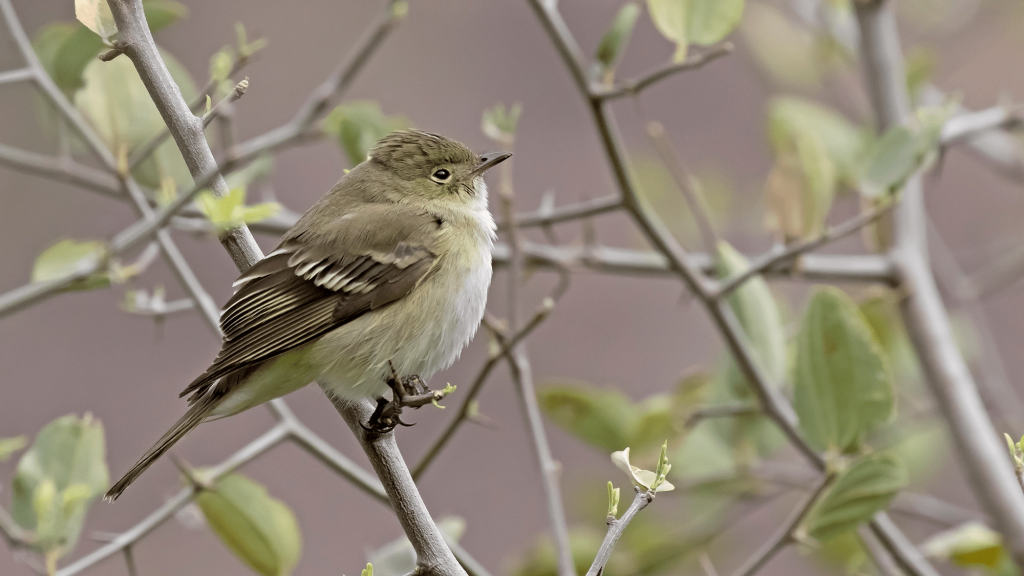For once, there’s an exciting story out of the Sunshine State that isn’t about a Florida man (or pythons). Instead, it’s a Florida bird—a very, very rare bird, because it doesn’t actually belong there.
Small-billed elaenia (Elaenia parvirostris) are small, greyish birds that live in South America. Unlike most animals we report on here, the tiny flier is listed as “Least Concern” on the IUCN Red List of Threatened Species. But that doesn’t mean it’s everywhere.
In fact, a Florida Gulf Coast University (FGCU) ornithologist spotted one in Florida for the first time known to science over Labor Day Weekend, triggering an onslaught of birdwatchers hoping to also catch a glimpse of the likely very confused bird.
Oscar Johnson originally went to FGCU’s Food Forest on August 29 to search for a rare hummingbird a friend of his had previously seen. Little did he know that he’d be in for something different.
“I noticed a bird in this tree right in front of us, which was a small greyish flycatcher with white wing bars, it’s a species I recognized from field work in Peru and Bolivia, it’s common there. It was a small billed elenia which was, as you might expect, a South American species—very rare here in North America,” Johnson told Fox 4.
According to the ornithologist, the bird has only been documented on the North American continent six known times. He posted about the unexpected sighting in birdwatching groups, and hundreds of enthusiastic birdwatchers descended upon the forest to try and catch a glimpse for themselves.
“I spent Labor Day weekend driving to Fort Myers and back (two days in a row) and spending several hours staking out with dozens of other birders for the chance to *maybe* see this bird active in the food forest at Florida Gulf Coast University,” Florida resident Rachel DiPietro wrote in a social media post, describing the animal as “skittish” and “uncooperative,” “only briefly flying out a few times but otherwise staying well hidden in the trees.”
With all those people staring up at it, can we blame the poor thing? Its life is hard enough as it is. Johnson believes that it probably ended up in Florida after migrating in the wrong direction. Now, its chances of surviving are not the best.
“Fingers crossed for this individual,” Johnson concluded.

